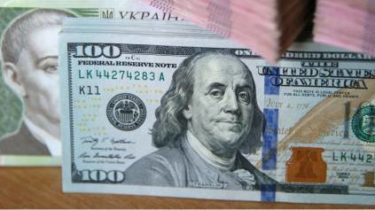NBU explained why rose Moody inflation, what causes the weakening of the hryvnia and why prices will rise

The national Bank of Ukraine left the discount rate unchanged at 12.5% per annum. The regulator explained that inflation at least stuck to its forecasts. Because now it is higher than expected.
“Conducting a restrained monetary policy due to the need to return inflation to the target trajectory. In August, consumer inflation continued to rise in annual terms and amounted to 16.2%. However, on a monthly measurement of consumer prices decreased by 0.1% due to seasonal cheapening of fruits and vegetables, clothing and footwear”, – said the NBU.
Inflation rose primarily because of rising prices for crude foodstuffs and tobacco products.
“As in previous months, this has resulted in the factors on the supply side, unfavorable weather conditions this spring resulted in higher prices of fruits and vegetables and significant exports of meat and dairy products – it is more expensive in the domestic market. Secondary effects from the price increase of meat and dairy products, as well as increasing production costs, including labor, which is primarily reflected in the prices of services, led to the acceleration in core inflation. Thus, the base consumer price index increased by 7.8% yoy and by 0.2% in the month. Consequently, the actual headline inflation slightly exceeded the trajectory of the forecast published in the Inflation report,” said the national Bank.
However, the regulator says, “the fundamental inflationary pressure remained moderate. This contributed to a further improvement of inflation expectations of professional forecasters, and the public. Another constraining factor for inflation, was the state of the currency market. In the previous months have seen a strengthening of the hryvnia to the U.S. dollar on the background of the favourable external market for the products of domestic exports and exchange rate expectations, which stimulated the population to actively sell foreign currency. In late August – early September the hryvnia exchange rate eased somewhat, however, according to National Bank, this was due to the temporary and psychological factors, and reflected the impact of seasonality of the previous years on the behavior of economic agents.”
NBU predicts inflation slowdown to the end of this year:
“First of all, given the high base of comparison last year, the expected moderate volatility of the exchange rate and the damping effects of “inflation surprises”. However, this year inflation will decrease slower than expected in the July forecast (9.1%). Accordingly, inflation more significantly deviates from the center point of the target range of 8% +/- 2.p. at the end of 2017″.
The regulator does not exclude growth of prices in the near future. Explains that “strengthening the fundamental pressure, in particular from the demand side. Consumption, which has noticeably come to life against the background of increasing wages, may receive an additional incentive by increasing budget spending and pension payments in the next months. Also high current growth rates of prices may provoke a change in the trend improvement in inflation expectations, which was observed during the last two years.”
At the end of October, the NBU will update its economic forecasts. The regulator does not exclude that the discount rate remains at current levels – to curb rising inflation rates.
“Return to the cycle of monetary easing will occur in the event of sustained weakening of inflationary risks and improve expectations. Specified may subject to the continuation of the program of cooperation with the International monetary Fund, which assumes the implementation of structural reforms, and subject to the prudent fiscal policy. However, in the case of fundamental inflationary pressures on the demand side, in particular due to the increase of social standards, inconsistent with the productivity growth of the economy, and in the case of a significant deterioration in inflation expectations, the national Bank may resort to more stringent monetary policy and increased the discount rate to compensate for proinflationary effects and the return of inflation to the target trajectory”, – said the NBU.
The next revision of the discount rate scheduled for October 26 this year.
We will remind, the government predicts a further devaluation of the hryvnia and decided on the dollar for the next year.